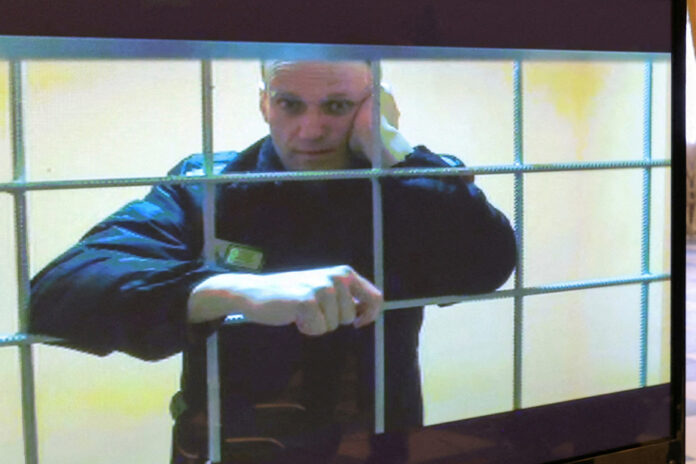The entourage of Russian opponent Alexei Navalny, who has been detained since 2021 in conditions assimilated to a form of torture by Amnesty International, says his health is deteriorating dangerously.
One of his lawyers, Vadim Kobzev, notably sounded the alarm about this on Twitter earlier this week by raising, in a series of messages, the possibility that the 46-year-old prisoner was the victim of an attempted poisoning ordered by the Kremlin.
Mr. Kobzev said that Mr. Navalny had experienced severe stomach pain recently and lost nearly 8 kilograms after spending 15 days in solitary confinement.
The lawyer, who is allowed to see the dissident occasionally, noted that he had tried in vain to obtain clarification from prison staff about the cause of his health problems and was not receiving treatment for it. .
“We will demand toxicological and radiological examinations,” Mr. Kobzev said, noting that there was nothing “paranoid” about considering a poisoning scenario in the case of Alexei Navalny.
Mr. Navalny then accused the regime of having sought to kill him, a scenario denied by the Kremlin.
On Friday, an ally of the dissident, Ruslan Shavbeddinov, in turn raised the possibility that a slow-acting poison was the cause of the inmate’s health problems.
“His situation is really critical, we are all concerned,” Shavbeddinov said in an interview with British newspaper The Guardian.
Alexei Navalny’s spokesperson, Kira Yarmich, who posted a series of alarmist messages on social networks, told CBC that his entourage did not currently have evidence to show that he was the target of an attempted poisoning.
But “we know [that Vladimir Putin] has already tried to kill Alexei and therefore nothing prevents him from trying to do it again,” she noted.
The political opponent, a trained lawyer who became known for his denunciation of the corruption of the Russian authorities, was sentenced to nine years in prison in 2022 for fraud and insulting a magistrate, charges fabricated from scratch for the silence, according to many Western countries.
He was transferred to a notorious penal colony about 250 kilometers from Moscow.
Marie Struthers, who heads Amnesty International’s section responsible for Eastern Europe and Central Asia, warned in a statement in September that the dissident’s health and well-being were at risk.
The prison authorities, she lamented, seek to break any hint of resistance on his part by repeatedly placing him in solitary confinement, sometimes citing minor faults such as a loose shirt button.
The activist also clarified that the other detainees were not allowed to speak to him, or even to look at him, so as to completely ostracize him.
Another well-known Russian opponent, Ilia Yashin, was given a heavy prison sentence in December for allegedly spreading “false information” about the Russian military.
The 39-year-old had accused Russian troops in a YouTube posting of being responsible for the “killing of civilians” in the Ukrainian town of Bucha following the invasion of the country in February 2022.
The Russian regime has reduced freedom of expression on its own territory to a trickle, including heavy penalties for anyone who talks about “war” rather than “special operation”.
The authorities also continued to tighten the screws on important civil society actors, such as the Helsinki Group, one of the oldest human rights organizations in the country, closed by court order.
Yann Breault, a specialist on Russia attached to the Royal Military College Saint-Jean, notes that the opposition to the regime is today in a “lamentable” state.
The death in custody of Alexei Navalny would not be likely, according to the analyst, to compromise the stranglehold on power of Vladimir Putin.


















